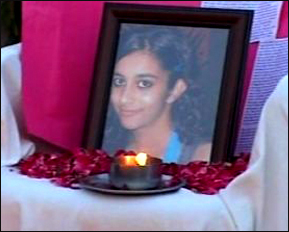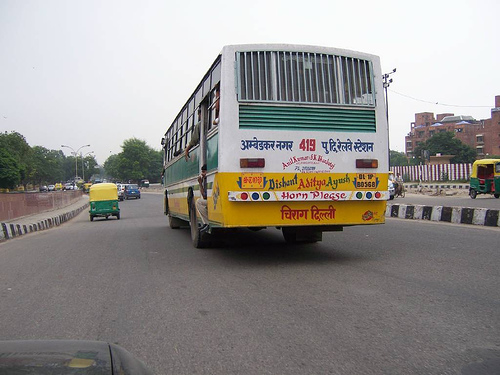(a) by altering rights or obligations of that person which are enforceable by or against him in private law or;
(b) by depriving him of some benefit or advantage which either: (i) he has in the past been permitted by the decision maker to enjoy and which he can legitimately expect to be permitted to continue to do until some rational ground for withdrawing it has been communicated to him and he has been given an opportunity to comment thereon or (ii) he has received assurance from the decision-maker that they will not be withdrawn without first giving him an opportunity of advancing reasons for contending that they should be withdrawn.
20. In Attorney General of Hong Kong Vs. Ng Yuen Shiu, a leading case on the subject, Lord Fraser said: "when a public authority has promised to follow a certain procedure, it is in the interest of good administration that it should act fairly and should implement its promise, so long as the implementation does not interfere with its statutory duty".
21. Explaining the nature and scope of the doctrine of legitimate expectation, in Food Corporation of India Vs. M/s Kamdhenu Cattle Feed Industries, a three-Judge Bench of this Court had observed thus:
"The mere reasonable or legitimate expectation of a citizen, in such a situation, may not by itself be a distinct enforceable right, but failure to consider and give due weight to it may render the decision arbitrary, and this is how the requirement of due consideration of a legitimate expectation forms part of the principle of non-arbitrariness, a necessary concomitant of the rule of law. Every legitimate expectation is a relevant factor requiring due consideration in a fair decision-making process. Whether the expectation of the claimant is reasonable or legitimate in the context is a question of fact in each case. Whenever the question arises, it is to be determined not according to the claimant's perception but in larger public interest wherein other more important considerations may outweigh what would otherwise have been the legitimate expectation of the claimant. A bona fide decision of the public authority reached in this manner would satisfy the requirement of non-arbitrariness and withstand judicial scrutiny. The doctrine of legitimate expectation gets assimilated in the rule of law and operates in our legal system in this manner and to this extent."
22. The concept of legitimate expectation again came up for consideration in Union of India & Ors. Vs. Hindustan Development Corporation & Ors. Referring to a large number of foreign and Indian decisions, including in Council of Civil Service Unions and Kamdhenu Cattle Feed Industries (supra) and elaborately explaining the concept of legitimate expectation, it was observed as under: "If a denial of legitimate expectation in a given case amounts to denial of right guaranteed or is arbitrary, discriminatory, unfair or biased, gross abuse of power or violation of principles of natural justice, the same can be questioned on the well-known grounds attracting Article 14 but a claim based on mere legitimate expectation without anything more cannot ipso facto give a right to invoke these principles. It can be one of the grounds to consider but the court must lift the veil and see whether the decision is violative of these principles warranting interference. It depends very much on the facts and the recognised general principles of administrative law applicable to such facts and the concept of legitimate expectation which is the latest recruit to a long list of concepts fashioned by the courts for the review of administrative action, must be restricted to the general legal limitations applicable and binding the manner of the future exercise of administrative power in a particular case. It follows that the concept of legitimate expectation is "not the key which unlocks the treasury of natural justice and it ought not unlock the gate which shuts the court out of review on the merits", particularly when the element of speculation and uncertainty is inherent in that very concept."
23. Taking note of the observations of the Australian High Court in Attorney General for New South Wales Vs. Quinn9 that "to strike down the exercise of administrative power solely on the ground of avoiding the disappointment of the legitimate expectations of an individual would be to set the Courts adrift on a featureless sea of pragmatism", speaking for the Bench, K. Jayachandra Reddy, J. said that there are stronger reasons as to why the legitimate expectation should not be substantively protected than the reasons as to why it should be protected. The caution sounded in the said Australian case that the Courts should restrain themselves and restrict such claims duly to the legal limitations was also endorsed.
24. Then again in National Buildings Construction Corporation Vs. S. Raghunathan & Ors., a three-Judge Bench of this Court observed as under:
"The doctrine of "legitimate expectation" has its genesis in the field of administrative law. The Government and its departments, in administering the affairs of the country, are expected to honour their statements of policy or intention and treat the citizens with full personal consideration without any iota of abuse of discretion. The policy statements cannot be disregarded unfairly or applied selectively. Unfairness in the form of unreasonableness is akin to violation of natural justice. It was in this context that the doctrine of "legitimate expectation" was evolved which has today become a source of substantive as well as procedural rights. But claims based on "legitimate expectation" have been held to require reliance on representations and resulting detriment to the claimant in the same way as claims based on promissory estoppel."
25. This Court in Punjab Communications Ltd. Vs. Union of India & Ors., referring to a large number of authorities on the question, observed that a change in policy can defeat a substantive legitimate expectation if it can be justified on "Wednesbury" reasonableness. The decision maker has the choice in the balancing of the pros and cons relevant to the change in policy. Therefore, the choice of the policy is for the decision maker and not for the Court. The legitimate substantive expectation merely permits the Court to find out if the change in policy which is the cause for defeating the legitimate expectation is irrational or perverse or one which no reasonable person could have made. (Also see: Bannari Amman Sugars Ltd. Vs. Commercial Tax Officer & Ors.
26. Very recently in Jitendra Kumar & Ors. Vs. State of Haryana & Anr.13, it has been reiterated that a legitimate expectation is not the same thing as an anticipation. It is distinct and different from a desire and hope. It is based on a right. It is grounded in the rule of law as requiring regularity, predictability and certainty in the Government's dealings with the public and the doctrine of legitimate expectation operates both in procedural and substantive matters.
27. An examination of the afore-noted few decisions shows that the golden thread running through all these decisions is that a case for applicability of the doctrine of legitimate expectation, now accepted in the subjective sense as part of our legal jurisprudence, arises when an administrative body by reason of a representation or by past practice or conduct aroused an expectation which it would be within its powers to fulfill unless some overriding public interest comes in the way. However, a person who bases his claim on the doctrine of legitimate expectation, in the first instance, has to satisfy that he has relied on the said representation and the denial of that expectation has worked to his detriment. The Court could interfere only if the decision taken by the authority was found to be arbitrary, unreasonable or in gross abuse of power or in violation of principles of natural justice and not taken in public interest. But a claim based on mere legitimate expectation without anything more cannot ipso facto give a right to invoke these principles. It is well settled that the concept of legitimate expectation has no role to play where the State action is as a public policy or in the public interest unless the action taken amounts to an abuse of power. The court must not usurp the discretion of the public authority which is empowered to take the decisions under law and the court is expected to apply an objective standard which leaves to the deciding authority the full range of choice which the legislature is presumed to have intended. Even in a case where the decision is left entirely to the discretion of the deciding authority without any such legal bounds and if the decision is taken fairly and objectively, the court will not interfere on the ground of procedural fairness to a person whose interest based on legitimate expectation might be affected. Therefore, a legitimate expectation can at the most be one of the grounds which may give rise to judicial review but the granting of relief is very much limited. [Vide Hindustan Development Corporation (supra)]





